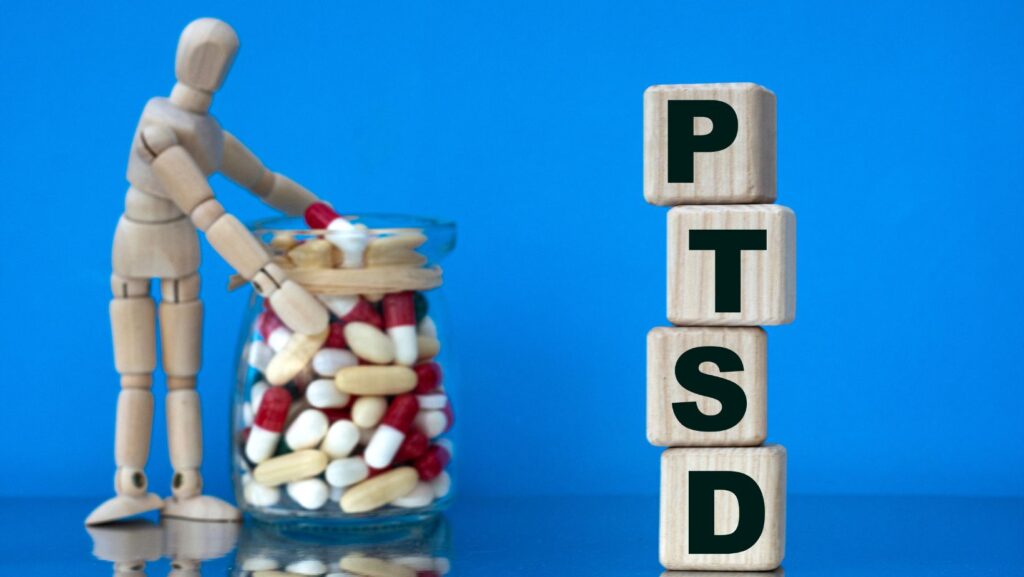Post-Traumatic Stress Disorder (PTSD) is a mental health condition that can develop after a person experiences or witnesses a traumatic event. It affects millions of individuals worldwide, making daily life and relationships challenging. PTSD impacts not only those who suffer from it but also their families and society as a whole.
Managing PTSD effectively requires treatments that are supported by scientific research. Evidence-based treatments have been studied extensively and shown to provide tangible benefits for people dealing with PTSD. These treatments aim to reduce symptoms, improve quality of life, and help individuals regain control.
This article focuses on five of the most effective treatments for PTSD, all backed by scientific studies. Whether you are someone experiencing PTSD or a caregiver looking for solutions, understanding these proven approaches can help in choosing the right path toward recovery.
What Is PTSD and Why Evidence-Based Treatments Matter
Understanding PTSD
Post-Traumatic Stress Disorder (PTSD) is a mental health condition that develops after experiencing or witnessing a traumatic event. This could include accidents, natural disasters, violence, or military combat. PTSD can affect anyone and often leads to intense fear, flashbacks, and emotional distress. Common symptoms include trouble sleeping, difficulty concentrating, irritability, and avoidance of event reminders. These challenges can disrupt daily life, relationships, and work, making it essential to seek help.
Importance of Evidence-Based Approaches
Treating PTSD requires methods that are proven to work through scientific research. Evidence-based treatments ensure that individuals receive safe and effective care. They are developed and tested through rigorous studies, focusing on reducing symptoms and improving overall well-being. Without this validation, some approaches might lack effectiveness, potentially worsening the condition. Following evidence-based methods provides individuals with a clear path to recovery and helps build trust in the treatment process.
Ultimate 5 Evidence-Based Treatments for PTSD
Post-traumatic stress disorder (PTSD) affects many individuals after experiencing traumatic events. Here are five evidence-based treatments that have shown effectiveness in managing PTSD symptoms.
Cognitive Behavioral Therapy (CBT)
CBT focuses on identifying and changing negative thoughts related to trauma. Subtypes like prolonged exposure and cognitive restructuring are used to help individuals process their trauma and challenge harmful beliefs.

Studies show that CBT leads to significant symptom reduction and improved quality of life for PTSD sufferers.
Eye Movement Desensitization and Reprocessing (EMDR)
EMDR uses guided eye movements to help the brain process traumatic memories. Research shows that this therapy helps reduce the emotional distress associated with traumatic experiences, allowing individuals to reframe and heal from their past.
Trauma-Focused Therapy
Trauma-focused therapies, such as narrative exposure therapy, concentrate directly on the trauma. These treatments help patients process and make sense of their traumatic events, leading to emotional healing and better coping mechanisms.
Pharmacological Treatments
Medications like SSRIs (e.g., fluoxetine) and SNRIs can help manage PTSD symptoms by balancing mood-related chemicals in the brain. While effective for many, pharmacological treatments may come with side effects and are often used alongside therapy.
Mindfulness and Stress Reduction Techniques
Mindfulness practices, such as yoga and meditation, can help manage stress and anxiety in PTSD patients. Research supports their effectiveness in reducing symptoms and improving emotional regulation, making them a valuable addition to PTSD treatment, especially in places like PTSD treatment Denver.
These evidence-based treatments provide different approaches to healing, offering hope and support to those affected by PTSD.
How to Choose the Right PTSD Treatment
When dealing with PTSD, selecting the proper treatment is crucial to recovery. Several factors should be considered to ensure the chosen approach is practical and suitable for the individual.
Factors to Consider
First, assess the severity of the symptoms. For some, PTSD symptoms might be mild and manageable, while for others, they may be intense and disabling. This can help determine whether a more intensive or supportive treatment is necessary. Additionally, the availability of therapists or clinics offering the treatment can be an essential factor. Accessibility to qualified professionals is key to ensuring consistent care. Lastly, personal preferences such as the desired type of therapy (individual or group, in-person or online) should be considered to make the treatment more comfortable and practical.
Role of Professional Guidance
It’s essential to seek guidance from mental health professionals when deciding on PTSD treatment. A licensed therapist or doctor can provide an accurate diagnosis and recommend the most appropriate evidence-based treatment tailored to your specific needs. Professional guidance ensures the treatment is not only practical but also safe, minimizing any potential risks. Having expert support throughout the recovery process can significantly improve the chances of healing and managing symptoms in the long run.
Conclusion
In conclusion, evidence-based treatments play a crucial role in helping individuals manage and heal from PTSD. These therapies, backed by research, have been proven effective in reducing symptoms and improving the quality of life for those affected. By using approaches like Cognitive Behavioral Therapy (CBT), Eye Movement Desensitization and Reprocessing (EMDR), Prolonged Exposure Therapy, and medications, professionals can provide tailored care to help individuals move forward.

It’s important to remember that no one has to go through PTSD alone. If you or someone you know is struggling, seeking help from a mental health professional is the first step toward healing. Therapy and proper treatment can make a significant difference, offering support and tools to manage the condition effectively.
Don’t hesitate to contact a healthcare provider if you need assistance. Early intervention can lead to better outcomes, allowing individuals to regain control over their lives and build a healthier future.
